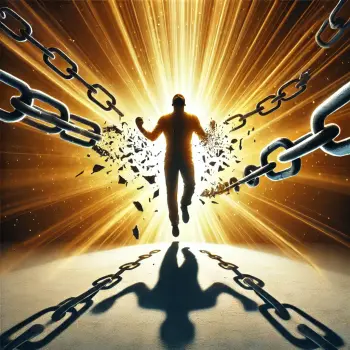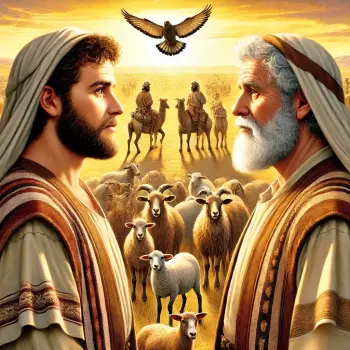
Spiritual insights can emerge from unexpected places. While we might expect to obtain insight from someone journeying solo through the wilderness or an expert ruminating on the lessons learned through meditation, rarely do we expect to find enlightenment in the newspaper. Can we glean awareness and understanding from sources that more typically inform us about the world of policy and politics? Can the headlines provide directions for our personal quests, especially during this month of Elul as we prepare for the High Holy Days?
Recently, Benjamin Netanyahu, the prime minister of Israel, paid a condolence call to the family of Ori Danino, one of the six hostages murdered by Hamas in late August. The broader scope of the conflict is a topic for another column. I want to focus on just part of the advice given to Netanyahu by Rabbi Elhanan Danino, Ori’s grieving father.
“Shut your office for 10 minutes a day and think about where your Jewish values are. Shut it down, send everyone out, no phones, nothing, spend time alone with your creator and think, where is God in your picture, where is the Jewish value that you bring?”
It is astonishing that in his grief, he wasn’t lashing out at the Prime Minister, searching for someone to blame, pointing fingers at the military or the state, or decrying the injustice of his son’s death. He’s not trapped by the past, but looking for solutions moving forward.
While he’s addressing a head of government, you don’t have to be a Prime Minister or a high government official, a corporate CEO, or even a team leader to take these words to heart. Each one of us is responsible for the direction of our lives. We, not some external power, control what we choose to do. We’re no longer children who can whine, “He made me do it.” So, who among us can’t find 10 minutes a day for self-reflection?
What’s your plan?
In order to ponder the path you’re on, you must first have a path. Having a path presupposes that you have a plan, a destination in mind or at least a general direction. But, we all know people who just drift directionless through life. Typically, we see them aimlessly wandering from job to job, relationship to relationship, always with a tale of some form of drama that accounts for their lack of success. Our lives need direction, in Hebrew kivun, to act with intentionality, kavvanah. In what direction do we see ourselves going? Are we content to be swept along with the tides and eddies of time or have we set a course that leads us toward our goal? For this month of Elul, we can review that plan, see if we have veered from the path that we had set and act intentionally to make course corrections. If we don’t have a plan, or if our needs or goals have changed, this is the time to create a new plan, to figure out what we want to do in our lives.
Is it the right plan?
Having a plan isn’t enough. If your plan is for worldwide domination, to corner the market on widgets for yourself, or to be wealthy beyond the dreams of avarice, you might need to rethink your plan. If your vision is so narrow that you cannot see beyond the confines of self, you need to seriously reconsider the path you’re on. Rabbi Danino reminded Prime Minister Netanyahu that he is the head of the government and ultimately everyone is reliant on his leadership. Most of us don’t have anything close to that level of responsibility, but we have important people in our lives: family, friends, co-workers, neighbors, and all the people we interact with on an average day. Our lives are intertwined with theirs. Beyond them our influence expands out to our community, our city, state, nation, and then all of humanity. Because of this latticework of connections, their lives must be part of our plan.
Just do it
You have a plan and it’s a good one. The only task remaining is to follow it. I know; easier said than done. We’re all busy people. There is always an interruption, a crisis, something that has to be dealt with. And, quite honestly, we all like to procrastinate and avoid dealing with anything that could potentially make us feel uncomfortable. Gazing inward often comes with the chance that we might not like what we see. Is that even more of a reason to give ourselves the possibility for change? Some of the questions we might want to ask ourselves are –
- Have we treated others with respect (derech eretz)?
- Have we acted to make the world a better place, fixed problems that we have seen, instead of assuming that’s someone else’s job (tikkun olam)?
- Have we been generous with our time and material wealth (tzedakah)?
- Have we taken time to learn from others and from tradition (talmud torah)?
- Have we been grateful for family, friends, and opportunities that we have (hakarat hatov)?
There are many more questions that we could ask, but that’s a good starting point. While Socrates’ dictum, “The unexamined life is not worth living” is a bit of an overstatement, I think that we can all agree that the examined life leads to deeper insights and richer experiences.
May all of our journeys be fruitful.

















